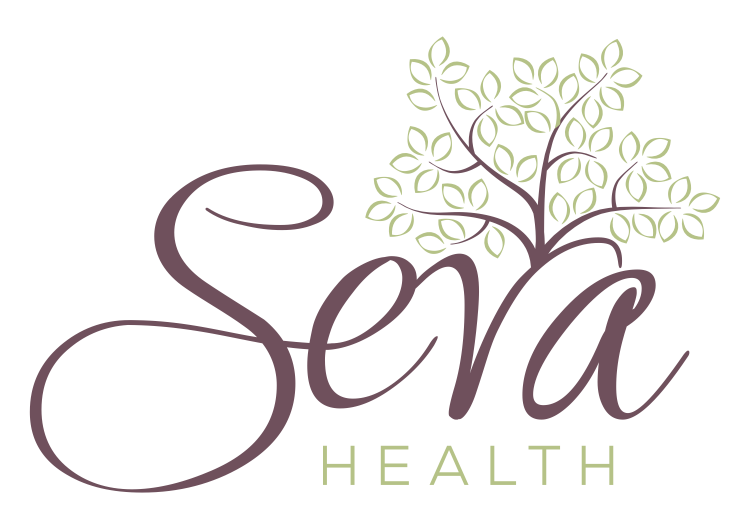
10 Dec Nutrition, Hormones & Health: Finding Natural Balance
When Sarah* was told that her anxiety and difficulty focusing could be a sign of low testosterone she could hardly believe it. Since when do women have to worry about testosterone? Turns out it was something to worry about and for good reason.
What Are Hormones?
Hormones are chemical messengers produced by glands that regulate bodily functions, emotions, and behaviors. Once released into the bloodstream, they interact with organs and tissues, guiding processes such as metabolism, mood, and reproduction. In women, the ovaries play a key role, producing estrogen and progesterone, the primary female sex hormones.
Hormones orchestrate numerous processes from growth and reproduction to metabolism, mood regulation, and sleep. While both men and women share the same foundational hormones, women experience distinct patterns of estrogen and progesterone production throughout their lives. These variations make hormonal balance especially important for women’s health. Though life events like puberty and menopause naturally affect hormone levels, dietary and lifestyle adjustments can often help restore balance.
Key Hormones in Women’s Health
Both men and women produce estrogen, progesterone, and testosterone, but women’s health is particularly influenced by estrogen and progesterone. These hormones fluctuate cyclically, regulating the menstrual cycle and reproductive health. Estrogen exists in three forms:
- Estradiol: Key for reproductive system maintenance; levels drop during menopause.
- Estriol: Increases during pregnancy to support childbirth and breastfeeding.
- Estrone: Produced post-menopause, aiding sexual and reproductive health.
.
Progesterone prepares the uterus for pregnancy and supports it if conception occurs. When pregnancy does not happen, progesterone levels drop, triggering menstruation. Thyroid hormones, such as thyroxine (T4) and triiodothyronine (T3), also significantly influence reproductive health, regulating puberty, menstruation, and menopause timing.
Androgens and Women’s Health
Androgens are a group of hormones, such as testosterone, that are often thought of as male hormones but are also critical for women’s health. They are produced by the ovaries, adrenal glands, and fat cells in smaller amounts than in men. Androgens play essential roles in women’s overall health, including influencing energy levels, libido, bone density, muscle mass, and mood.
Testosterone is the predominant androgen in all genders. Other androgens include:
- Androstenedione.
- Dehydroepiandrosterone (DHEA).
- DHEA sulfate (DHEA-S).
- Dihydrotestosterone (DHT)
.
Importance of Androgens for Anxiety and Focus
- Role in Brain Chemistry: Androgens influence the balance of neurotransmitters like serotonin, dopamine, and GABA, which regulate mood and anxiety. A deficiency in androgens may lead to increased anxiety or depressive symptoms.
- Cognitive Function: Androgens also play a role in cognitive performance. Low androgen levels may contribute to difficulty focusing or “brain fog,” particularly in perimenopausal and menopausal women.
- Stress Response: Androgens help modulate the body’s response to stress by interacting with the hypothalamic-pituitary-adrenal (HPA) axis, which regulates cortisol levels. A healthy balance of androgens can support resilience against stress-related anxiety.
Clinical Context
During midlife, androgen levels naturally decline, which may coincide with the onset of anxiety, reduced focus, and other cognitive symptoms. Monitoring and managing hormone levels through lifestyle interventions, nutrition, or hormone replacement therapy (when clinically appropriate) can be a strategy to improve these symptoms. A comprehensive assessment of hormone status can reveal:
- Sex hormones (estrogens, progesterone, testosterone) production and metabolic patterns
- Adrenal hormones (DHEA and cortisol) production and metabolic patterns
- Diurnal free cortisol and cortisone patterns
- Melatonin production through the night
.
Causes and Impacts of Hormonal Imbalance
When Sarah learned that her testosterone level was really low, the solution for her symptoms made sense. Hormonal imbalances occur when levels of specific hormones are too high or low. Stress, poor diet, medical treatments, and conditions like PCOS (polycystic ovary syndrome) or thyroid dysfunction often disrupt balance. These imbalances may lead to irregular periods, weight changes, or conditions like diabetes and hypothyroidism. In her case, correcting her low testosterone level was an important place to start.
Natural Ways to Support Hormonal Balance
While conventional treatments like hormone replacement therapy (HRT) and medications are options, many want natural approaches. Lifestyle changes and dietary adjustments can often improve hormone levels.
- Include Healthy Fats: Avocado, olive oil, and seeds support hormone production and reduce inflammation.
- Eat Enough Calories: Proper nutrition ensures your body produces hormones efficiently.
- Focus on Quality Proteins: Organic chicken, wild-caught fish, or plant-based proteins like quinoa aid hormone creation and stabilize blood sugar.
- Prioritize Fiber-Rich Carbohydrates: Whole grains and oats promote stable blood sugar levels and reduce cortisol.
- Stay Active: Regular exercise improves insulin sensitivity and supports conditions like PCOS.
- Support Gut Health: Incorporate probiotic-rich foods like yogurt, sauerkraut, and kefir to optimize hormone production.
Balancing hormones naturally is achievable with mindful nutrition and consistent habits. By understanding hormonal changes and making targeted lifestyle choices, you can support your overall well-being at every stage of life.
Start today—because balanced hormones are foundational for a stronger, more resilient you now and in the future!
Looking for a personalized solution to support your health and hormone goals but don’t have time to do the research?
Click HERE to learn more about a custom supplement plan tailored to your unique needs.


Sorry, the comment form is closed at this time.